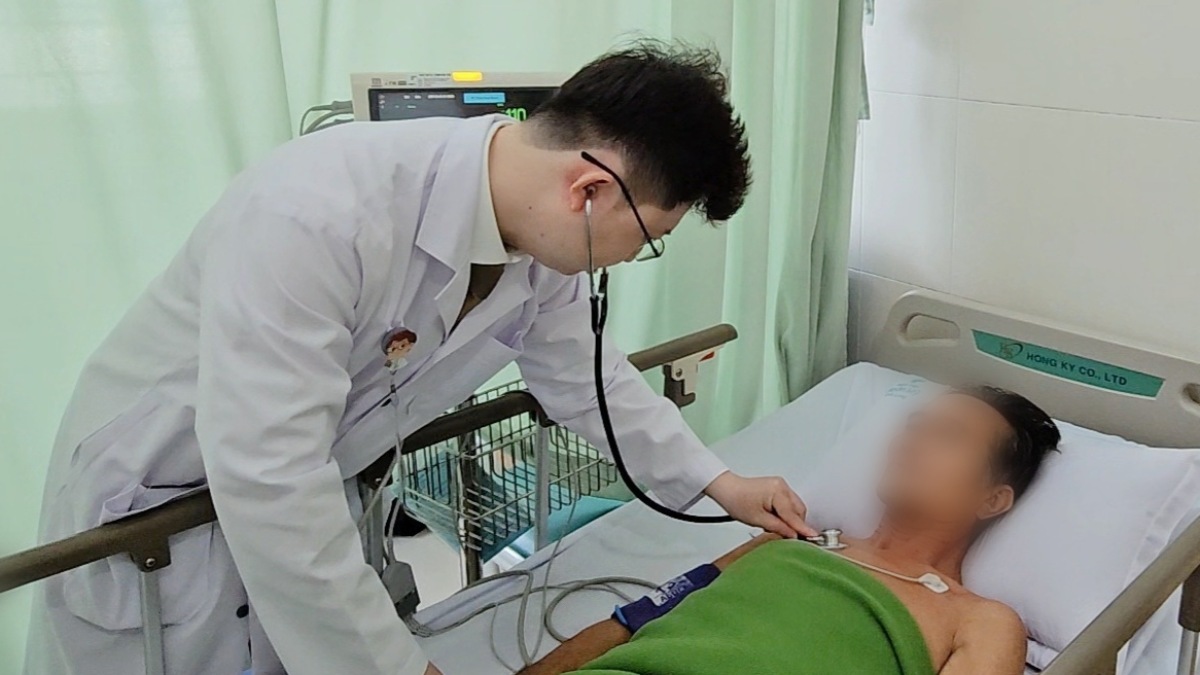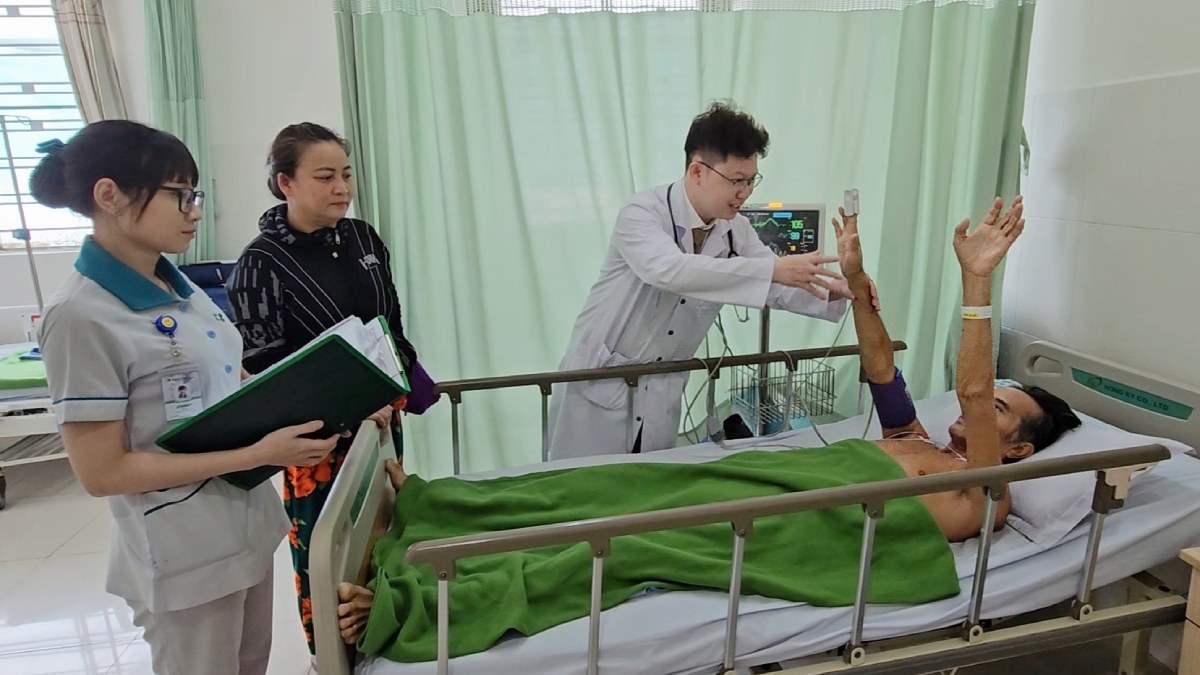The patient, Mr. L.V.B (58 years old, from Hau Giang province), had common cold symptoms such as mild fever, headache, cough, and gradually felt numbness and weakness in his limbs over a period of about 2 weeks. In the following days, the patient noticed a change in his voice, difficulty talking and eating, increased coughing and difficulty breathing, so his family took him to Hoan My Cuu Long Hospital.

At the Emergency Department, doctors noted that the patient had weakness in all four limbs, decreased tendon reflexes, and progressive respiratory failure. Through examination, medical history, and paraclinical results, the patient was diagnosed with Guillain Barre syndrome with complications of acute respiratory failure - pneumonia.
After consulting with the Neurology and Intensive Care and Anti-Poisoning (ICU) departments, the doctors agreed to prescribe emergency plasma exchange for the patient, combined with mechanical ventilation, antibiotics, and other intensive care and monitoring support.
According to doctors, if plasma is not replaced promptly, the patient's condition may worsen, leading to complete paralysis of the respiratory muscles, severe autonomic nervous system disorders with a high risk of death.
After 15 days of treatment, undergoing 5 plasma exchange sessions and intensive care measures, the patient was taken off the ventilator, his general muscle weakness improved significantly, vital signs almost returned to normal, and he was discharged from the hospital and monitored as an outpatient.

Master, Doctor Pham Truong Nhan - Department of Cardiology - Endovascular Intervention, Hoan My Cuu Long Hospital - shared that Guillain-Barre syndrome is a rare and difficult-to-treat disorder, in which the body's immune system attacks part of the peripheral nervous system and can cause temporary paralysis.
The exact cause of this syndrome is unknown, but it often begins after an infection such as a respiratory infection or viral gastroenteritis.
Doctor Nhan recommends that when there are signs such as numbness, weakness in the hands and feet or suspected neurological diseases, patients should have a detailed examination by a neurologist and specific paraclinical tests (electromyography and cerebrospinal fluid testing) early, to be diagnosed and treated promptly, avoiding dangerous complications and sequelae.
